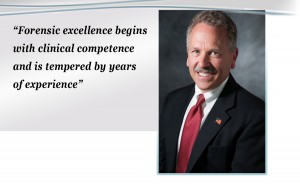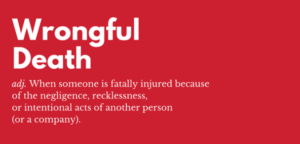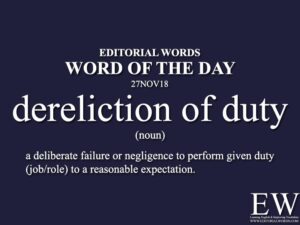Tolisano v Texon:
New York States Protects Expert Witnesses

Neil S. Kaye M.D. is an active clinician and expert witness. As a specialist in Forensic Psychiatry, his testimony has had a major impact in high profile cases.
Neil S. Kaye, M.D.
Forensic Psychiatrist Dr. Neil S. Kaye M.D. is a specialist and expert witness in Forensic Psychiatry, his testimony has had a major impact on high profile cases and studies.
His Curriculum Vitae, credentials and information can be found at www.courtpsychiatrist.com .
Every expert witness is familiar with the four D’s of tort law: a Dereliction of a Duty Directly causing Damages. In order for a tort claim to be successful all four of these elements must be proven. The professions, medicine in particular, have long held that when examining and rendering an opinion for a third party, no malpractice could be charged as clearly there was no patient/physician relationship and hence no Duty to the individual.
This reasoning allows for participation by psychiatrists in insurance examinations, competency hearings and a host of other forensic examinations. Although this reasoning may seem clear to A.A.P.L. members, until the New York State Court of Appeals (1) (the State’s highest court) overturned a New York State Supreme Court Appellate Division ruling (2) this issue was in doubt.
The Case:
Samuel Tolisano was a law secretary to various Justices of the Supreme Court in New York County between 1963 and 1978 when he died at age 62. Throughout this time he suffered from a heart condition having sustained a myocardial infarction in 1961. In November 1977, Tolisano was subpoenaed by the New York County District Attorney’s office to testify before a Grand Jury. He was only a witness and not the subject of the investigation.
He advised the District Attorney’s office of his heart condition and claimed that being compelled to testify would pose a risk to his health. The subpoena was withdrawn until March 1978, when his counsel and the District Attorney agreed to a physical examination to ascertain his present condition.
Dr. Meyer Texon, a specialist in cardiovascular disease examined Tolisano after a review of the hospital records and Tolisano’s own physician’s reports. It was Dr. Texon’s opinion that Tolisano was able to testify “without significant risk to his life.”
Tolisano then brought a motion to quash the subpoena. A hearing was held at which time Justice Rothwax found “based on all of the evidence, that this witness can testify before the Grand Jury without significant risk or hazard to his health or life…” and ordered Tolisano to appear before the Grand Jury the following day. The ordered was stayed upon Tolisano’s immediate appeal to the Supreme Court Appellate Division. Seven weeks later, while the appeal was still pending, Tolisano died. That court found the appeal to be moot and it was dismissed.
Tolisano’s wife, acting as administratrix of the estate commenced a wrongful death suit against Dr. Texon alleging that he rendered a false, negligent, reckless and careless examination, report and opinion regarding her husband which resulted in his being ordered to appear before the Grand Jury and that the stress or the order and the appeal resulted in his death. Damages of one million dollars were sought.
Interestingly, the language of the claim suggests that the plaintiff recognized that a malpractice suit was not viable and instead couches its claim in terms of negligence, thus attempting to add “negligent opinion” to the list of potential tort actions a physician might face.
In 1981, Texon moved to dismiss the action against him claiming quasi judicial immunity. This was denied on the grounds that he has been hired by the prosecutor and not by the court itself.

Occurs when someone is fatally injured because of the negligence, reckless, or intentional act of another person or company.
After five more years of inactivity, Texon again moved to have the case dismissed and requested summary judgment on the grounds that no doctor/patient relationship existed and that public policy precluded suits against an expert witness for adverse testimony. The lower courts denied his motion to dismiss and Texon appealed to the New York State Court of Appeals.
New York State Court of Appeals:
Recognizing the importance of the case at bar, the Medical Society of the State of New York filed a brief amicus curiae (3) in the matter. Specifically, their concerns were that the Court accepted as questions of fact, the duty owed by a physician to an individual about whom the physician rendered an opinion. The Medical Society claimed that there could be no question of duty, because as a matter of law, a non-treating physician owes an examination subject no duty of care as to the opinion rendered to a third party. The Medical Society was careful to point out that there was no basis for the claim in malpractice or negligence for the rendition of an opinion which an individual asserts is incorrect.
In December 1989, the New York State Court of Appeals accepted the position stated in the brief amicus curiae and dismissed the proceedings against Dr. Texon. The court agreed that there existed no physician/patient relationship.
Comment:
It is difficult to understand how a case that seems on its surface to be so clear could languish for over a decade in the court system and then appear before the State’s highest Court. Although justice is not necessarily swift, in this case it has prevailed and in the process an important decision has been handed down. Hopefully, this decision will lay to rest any further action in this area. Expert witnesses may now sleep better, knowing they are protected by a high level decision, as they perform their work in a competent and professional manner.
- Tolisano v. Texon, 550 N.E. 2d 450, 551 N.Y.S. 2d 197 (1989)
- Tolisano v. Texon, 533 N.Y.S. 2d 874, 144 A.D. 2d 267 (1988)
